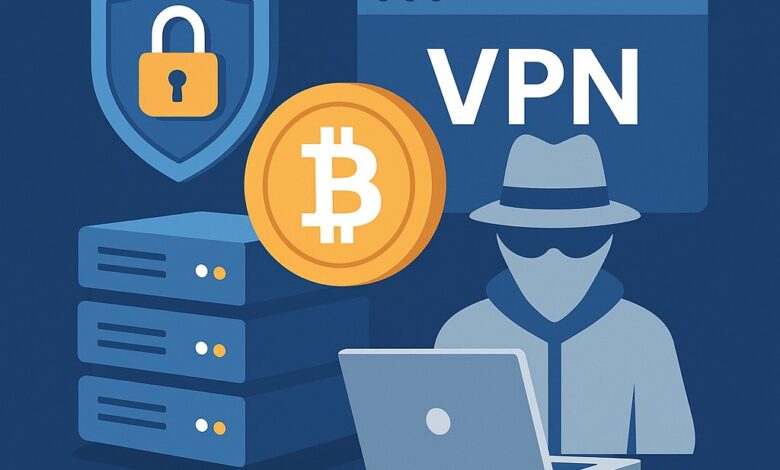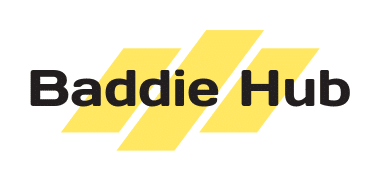Crypto Hosting Solutions: Fast Payments and Global Freedom

Introduction
The internet has become the world’s most powerful platform for communication, commerce, and creativity. Yet, it’s also increasingly constrained by surveillance, censorship, and rigid payment systems. Many people are realizing that traditional hosting and payment services don’t fully protect their privacy or enable true freedom.
This is where Crypto Hosting comes in. By blending the security of advanced hosting with the financial freedom of cryptocurrencies, crypto hosting solutions provide a new standard: fast payments, global access, and uncompromised anonymity.
In this blog, we’ll explore why crypto hosting matters, how it works, the key features that make it unique, and why it’s shaping the future of privacy and borderless commerce.
What Is Crypto Hosting?
Crypto Hosting is a specialized form of web hosting that integrates cryptocurrency payments, privacy-centric infrastructure, and offshore or bulletproof hosting environments. Unlike mainstream hosting providers, crypto hosting emphasizes:
- Anonymity – no identity or minimal KYC required.
- Crypto Payments – Bitcoin, Ethereum, stablecoins, Monero, and more.
- Global Freedom – borderless payments and worldwide accessibility.
- Privacy and Security – strong encryption, DDoS protection, and offshore data centers.
- Resistance to Censorship – providers often ignore DMCA or politically motivated takedown requests.
Crypto Hosting empowers users to take control of their digital presence without being tied to centralized systems or vulnerable to censorship.
Why Traditional Hosting Falls Short
To understand the importance of Crypto Hosting solutions, it helps to see the limits of conventional hosting.
Identity Exposure
Traditional hosting requires full personal details, credit cards, and bank information, which are traceable and linked to your identity.
Payment Restrictions
Global users often face issues paying for hosting due to international banking restrictions, sanctions, or cross-border fees.
Censorship and Surveillance
Mainstream providers comply quickly with DMCA requests, government demands, and surveillance laws. Websites can be taken down without due process.
Limited Freedom
Even legal but controversial content—political dissent, independent journalism, or alternative opinions—may be removed if it conflicts with a provider’s policies.
The Promise of Crypto Hosting
Crypto Hosting addresses these limitations head-on. Its promise can be summarized in three core pillars:
- Fast Payments – Cryptocurrency enables near-instant global transactions without banks or intermediaries.
- Global Freedom – Offshore servers and crypto billing allow users from anywhere to access secure hosting.
- Anonymous Infrastructure – Minimal KYC and private domain services safeguard user identity.
Together, these pillars redefine what hosting means in the modern era.
Key Features of Crypto Hosting Solutions
- Borderless Payments
Crypto Hosting lets you pay with Bitcoin, Ethereum, or even stablecoins like USDT. Payments are fast, global, and free from traditional banking hurdles.
- Offshore Jurisdictions
Servers are located in privacy-friendly regions such as Iceland, the Netherlands, or Panama, where laws protect anonymity and resist censorship.
- Bulletproof Policies
Many Crypto Hosting providers advertise “DMCA ignored” or “bulletproof hosting,” meaning they do not comply with takedown requests unless mandated by their jurisdiction.
- Advanced Security
From SSL encryption and encrypted storage to DDoS mitigation, crypto hosting solutions prioritize secure environments.
- Flexible Hosting Types
Options range from shared hosting for small projects to VPS and dedicated servers for businesses needing power and control.
- Private Domains
Providers often support anonymous domain registration, or even decentralized domain systems.
How Crypto Hosting Works
Here’s what the typical process looks like:
- Choose a Plan – Shared, VPS, or dedicated hosting.
- Sign Up Anonymously – No full identity required; pseudonymous usernames accepted.
- Pay in Crypto – Bitcoin, Monero, Ethereum, or stablecoins are accepted.
- Server Setup – Provider allocates an offshore server and delivers login credentials.
- Anonymity Practices – Users connect via VPN/Tor, keep domain registrations private, and use operational security measures.
This seamless flow combines technical resilience with financial independence.
Benefits of Crypto Hosting
Fast & Anonymous Payments
No banking intermediaries, no long verification—just quick, borderless crypto transfers.
Global Reach
Anyone with internet and a crypto wallet can access Crypto Hosting solutions, regardless of location.
Censorship Resistance
Offshore servers and bulletproof policies mean websites are less vulnerable to takedown pressures.
Strong Security
Providers emphasize encrypted storage, backups, and DDoS protection.
Financial Independence
With crypto, you don’t rely on banks or credit card networks. You control your hosting and payments.
Challenges of Crypto Hosting
Despite the benefits, Crypto Hosting comes with trade-offs:
- Legal Risks – Even offshore providers can be pressured by international law.
- Performance Variability – Offshore servers may have slower connections depending on region.
- Reputation Concerns – Some providers also host shady content, which can affect network trust.
- Crypto Volatility – Payments made in fluctuating coins like BTC may be affected by price swings.
- Limited Support – Anonymous providers may offer slower or less personalized customer service.
Crypto Hosting in Action: The BlackOutHost Example
One prominent player is BlackOutHost
- Accepts Bitcoin and over 50 altcoins.
- Offers DMCA-ignored and bulletproof hosting.
- Offshore data centers for maximum privacy.
- Shared hosting, VPS, RDP, and dedicated server plans.
- Emphasis on anonymity—no identity verification required.
BlackOutHost demonstrates how crypto hosting combines speed, privacy, and freedom, catering to users who want independence from centralized restrictions.
Best Practices for Secure Crypto Hosting
To maximize your security:
- Always use a VPN or Tor to manage your server.
- Use privacy coins like Monero for maximum anonymity.
- Keep domains anonymous with WHOIS privacy or decentralized domains.
- Encrypt backups and store them securely.
- Separate identities—never link personal email or bank accounts to your crypto hosting setup.
Future of Crypto Hosting: Fast Payments & Global Freedom
Crypto Hosting is positioned to become even more powerful as technology advances. Trends include:
- Integration with Web3 – Hosting decentralized applications (dApps) with crypto-native infrastructure.
- Decentralized Storage – Using IPFS, Filecoin, or Arweave for hosting files and content.
- Privacy by Default – Zero-knowledge proofs, decentralized identity, and encrypted infrastructure becoming standard.
- Mainstream Acceptance – More businesses adopting crypto hosting to serve global customers.
The future of hosting is decentralized, anonymous, and crypto-powered.
FAQs About Crypto Hosting
Q1: Is Crypto Hosting legal?
Yes, but hosting illegal content remains prohibited. Legality depends on jurisdiction.
Q2: Which coins are supported?
Most providers accept Bitcoin, Ethereum, Litecoin, Monero, and stablecoins.
Q3: Can businesses use Crypto Hosting?
Yes—especially if they want to accept crypto payments and serve international audiences.
Q4: Is it only for controversial sites?
No. Many users simply value privacy, faster payments, and freedom from banking restrictions.
Q5: Does it cost more?
Prices vary, but crypto hosting is often competitive with mainstream providers.
Conclusion
Crypto Hosting solutions are redefining how we think about online infrastructure. They combine fast, borderless payments with privacy-first hosting, enabling global freedom.
Whether you’re a journalist resisting censorship, an entrepreneur accepting crypto payments, or simply someone who values online privacy, crypto hosting provides a pathway to secure, fast, and anonymous digital presence.
The future of hosting is crypto-driven, and it’s already here.




